Special Report
The Countries That Have Come Closest to True Gender Equality

Published:
Last Updated:

If a country’s attitude towards gender equality is a factor in deciding where you’d travel to next, then your bucket list may look very different than the most visited countries in the world.
Gender equality is the right to equal opportunities and resources regardless of gender. In its annual report, the World Economic Forum reviewed the percentages of men and women working, economic opportunities, educational attainment, health status, and political empowerment to measure overall gender equality in 149 countries.
Scandinavian countries lead the way. Famous for being open-minded, Iceland has a smaller gender gap than any other country, even though one still exists, especially when it comes to pay. What some people may find surprising is that the rest of the top 10 list features developing countries such as Rwanda and Nicaragua, but not the United Kingdom, which came 15th.
The report is not a ranking of the best places for women to live in. For example, even though Nicaragua comes in fifth, it does not mean that women there are overall better off than women in the United States, which ranks 51st. The WEF index measures countries on their progress toward women having the same economic, survival, education, and political opportunities as men.
Globally, the overall gender gap stood at 68% in 2018, which was only slightly better than 2017. There is still a 32% average gender gap to be closed. The good news is that 89 of the 144 nations included in the list both years are marking a positive change.
All geographical regions in the report have achieved at least 60% gender parity. Western Europe is leading the way with the smallest overall gender gap – 34.2% remains to be closed. North America (27.5%) and Latin America (29.2%) are second and third.
However, despite decades of raising awareness for gender equality and making political pledges to improve the status of women, the world has a long way to go in reaching parity. These are the countries where women are still far away from being equal to men.
Click here to read about the best countries for gender equality.
The following list is based on the World Economic Forum’s 2018 Global Gender Report, which compares 149 countries and their progress toward gender parity. The ranking is based on four major dimensions: economic participation and opportunity, educational attainment, health and survival, and political empowerment.
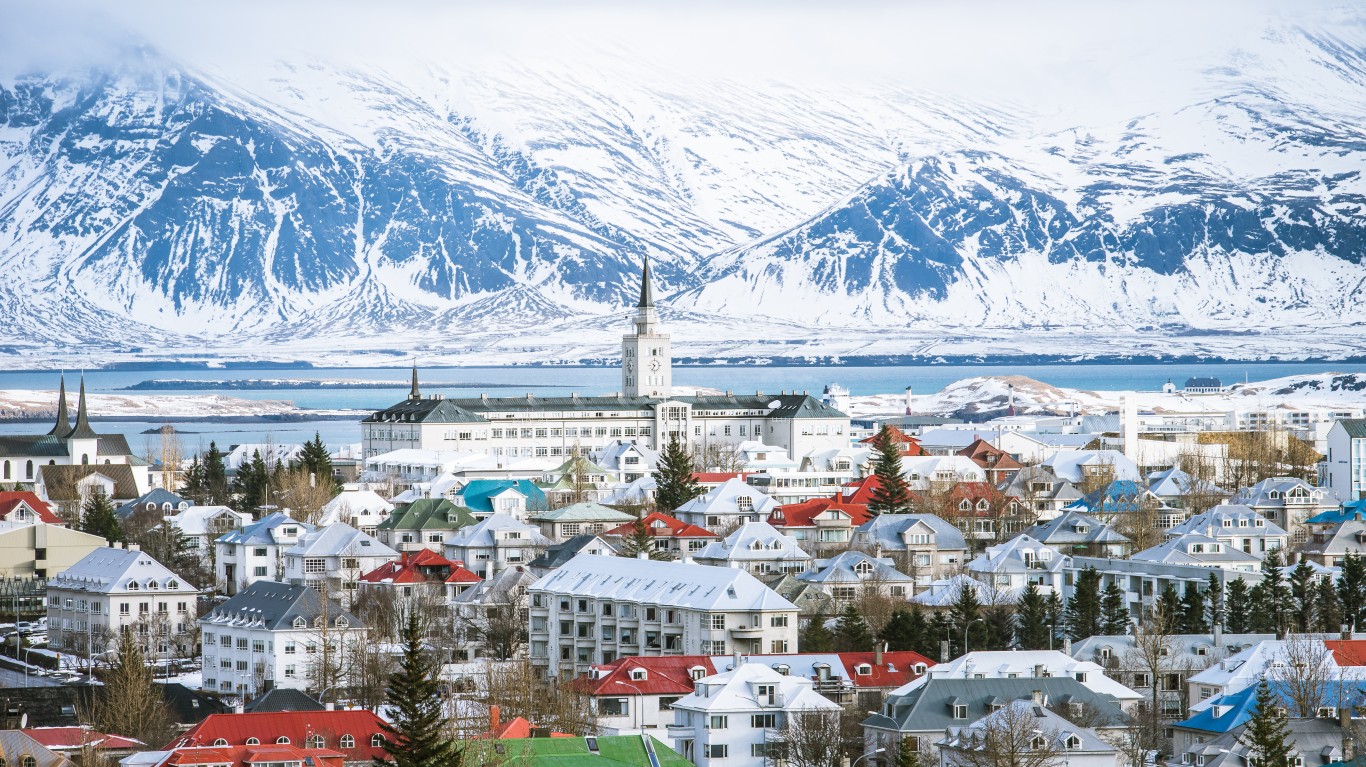
1. Iceland
Iceland has been at the top of the World Economic Forum’s Global Gender Gap Index for the 10th year in a row. The small island ranks No. 1 in several of the measures used to create the Index, including wage equality for similar work, share of women who work in the professional and technical sectors, and political empowerment.
Some argue that the path to equality for Icelandic women all started in 1975 when 90% of them went on strike to demonstrate how dysfunctional society would be without them. Five years later, Iceland became the first country in the world to elect a woman as president and became known as “the world’s most feminist country.”
[in-text-ad]
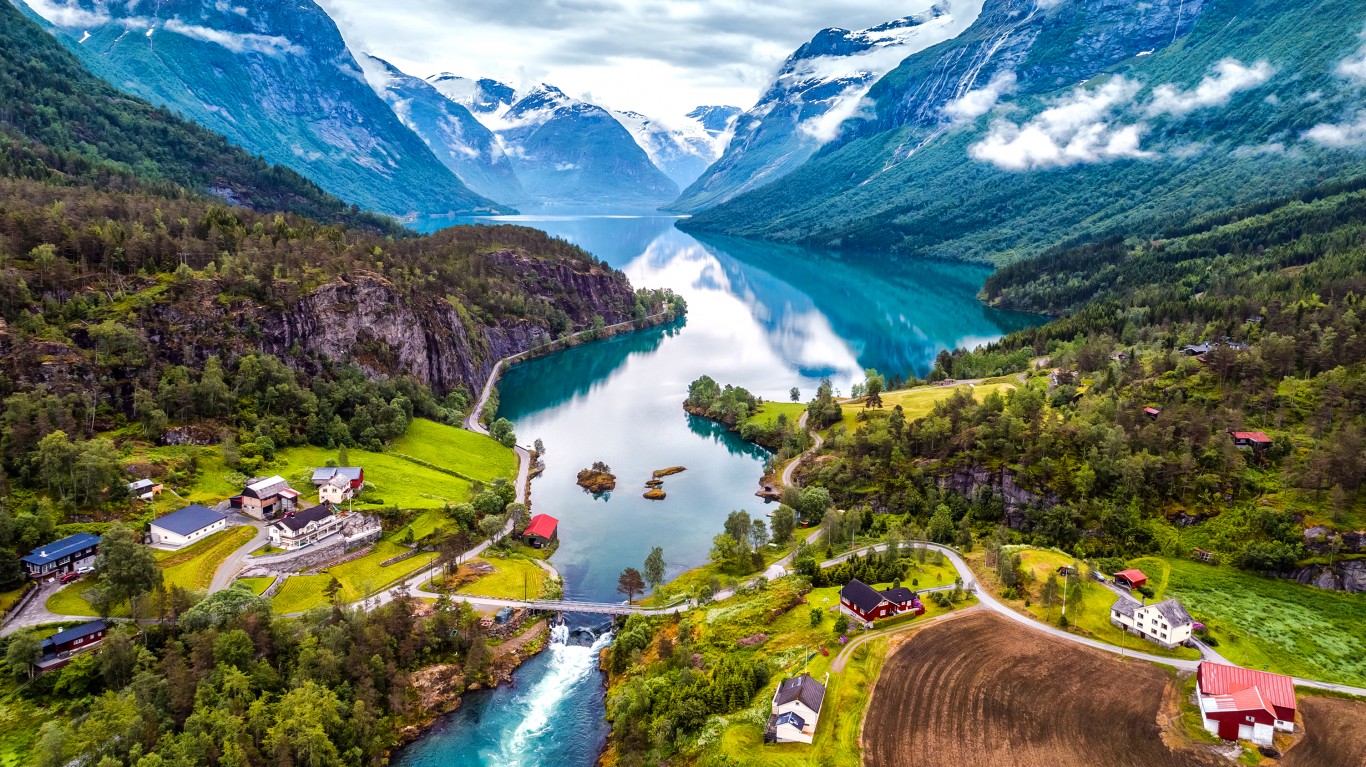
2. Norway
Like Iceland, Norway has historically been considered among the best countries for gender equality. It ranked No. 2 back in 2006, No. 3 in 2016, and No. 2 again in 2018. More women than men work in professional and technical jobs — 52.9% of such jobs are held by women, one of the most even ratios among all 149 countries in the report.
Some of the gender specific actions the country has taken to bring equality are more radical than others, and some focus on men, rather than women. For example, employers are allowed to choose a woman over a man for a job if she is almost as well qualified. Similarly, men can be chosen over women in occupations related to child care, where men are underrepresented.
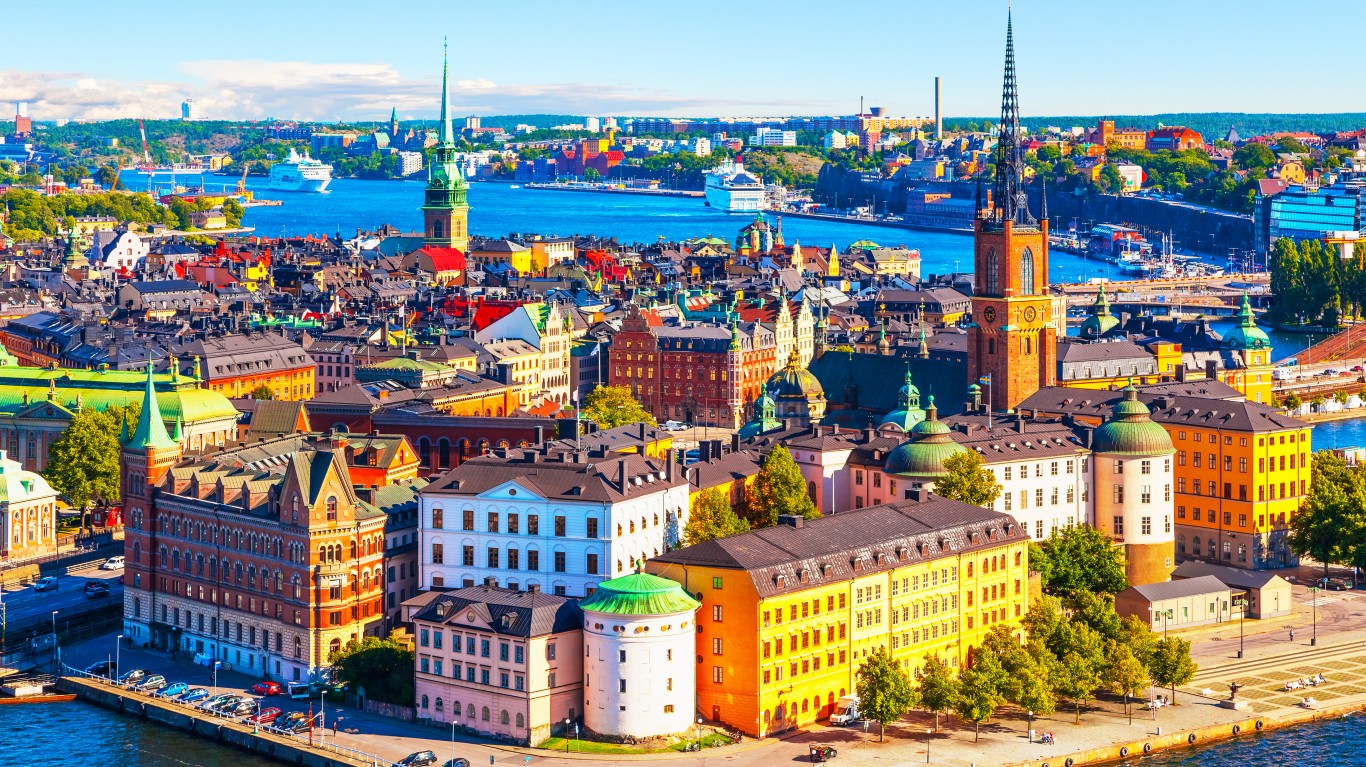
3. Sweden
Sweden has dropped in the ranking over the last decade when it comes to gender equality, but only slightly. The Scandinavian country went from being at the top in 2006 to being No. 3 in 2018. One of the measures used to create the Global Gender Gap Index in which women fare particularly well is ministerial positions — more than half are women in Sweden.
However, women are still underrepresented in business. For example, in 2016, over 80% of managers at Swedish companies listed on the stock market were men and no new company had a female boss.
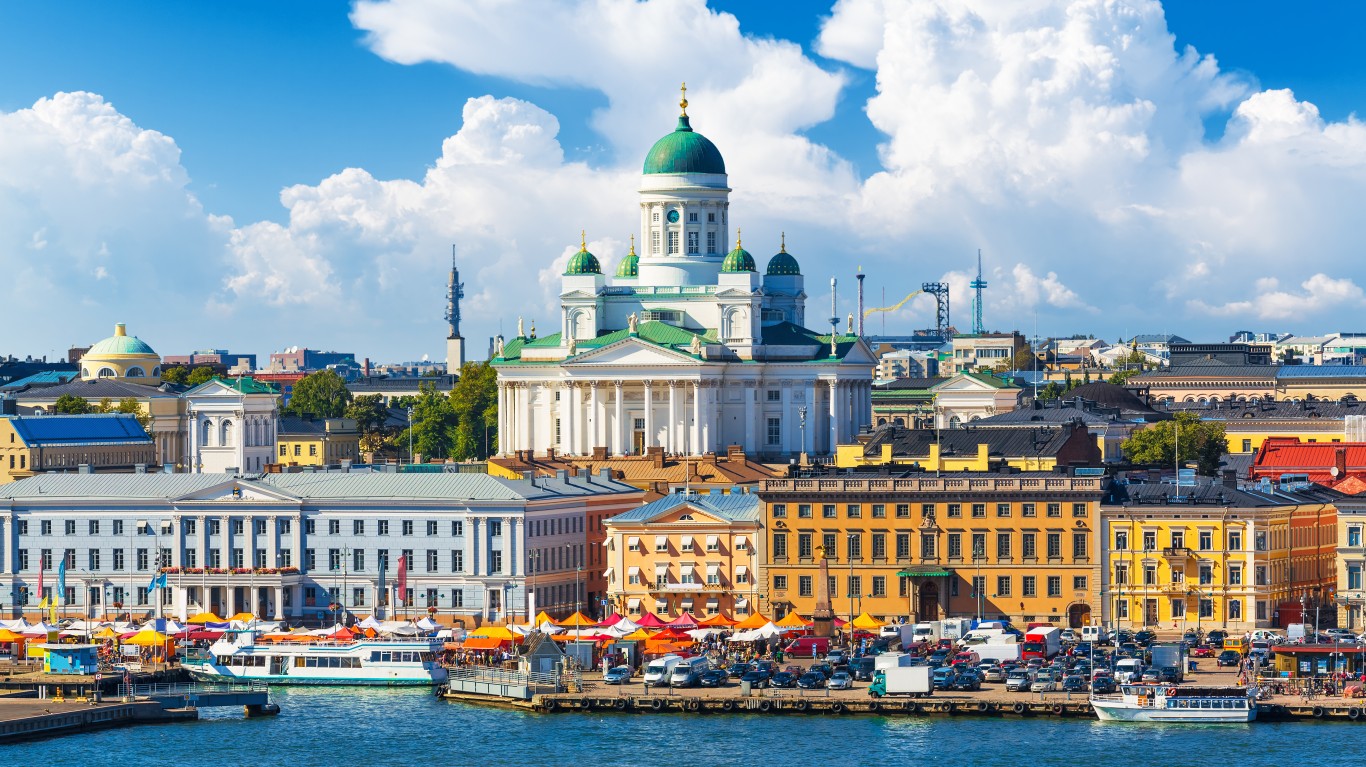
4. Finland
Finland has a long history of promoting equal rights. It was the first European country to grant women the right to vote and stand for election in 1906. Organizations working for women’s rights were established as early as the 1880s.
A century later, Finland still leads the way. In 2017, the country established the world’s first International Gender Equality Prize, which is given to a person or an organization that has had a significant impact in advancing gender equality across the world.
[in-text-ad-2]
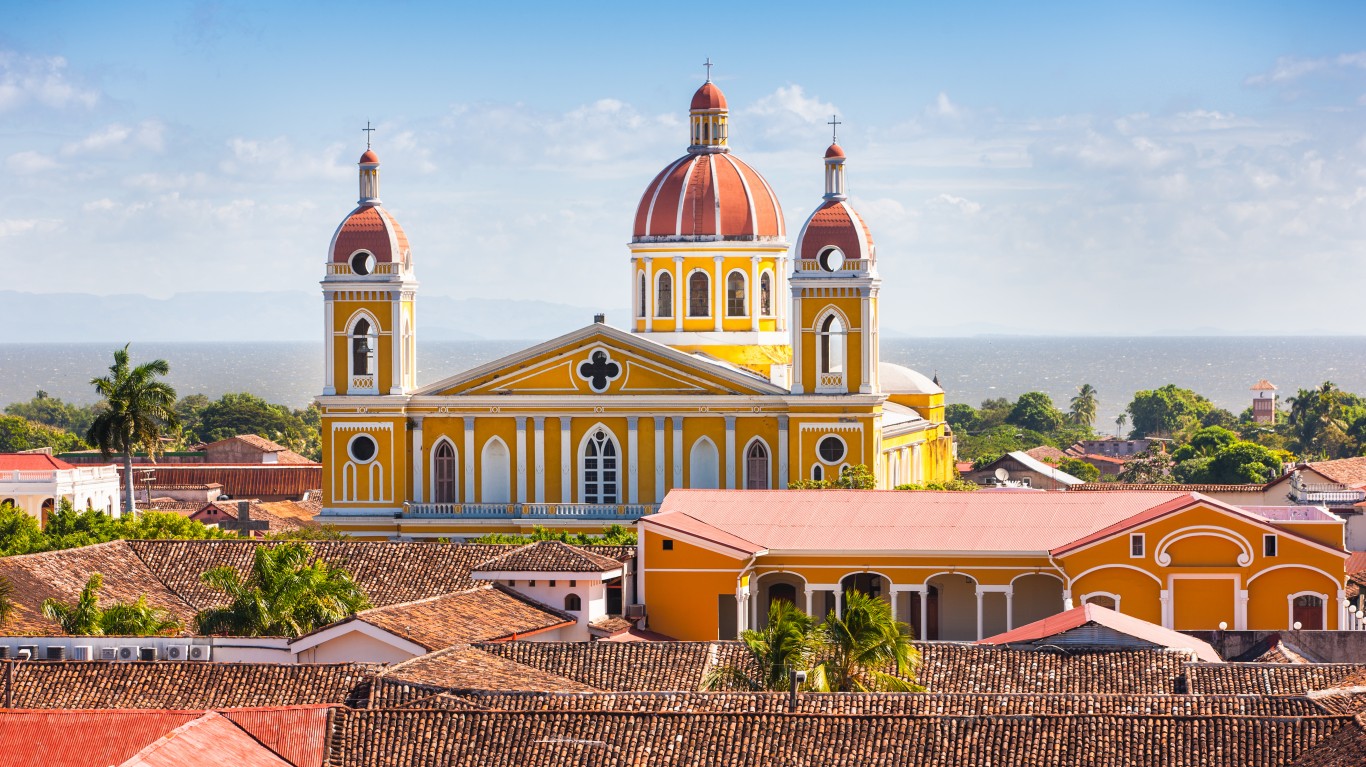
5. Nicaragua
Nicaragua has come a long way since 2006 when it ranked 62nd out of 114 countries when it came to gender equality. The Central American country is now one of three nations — right next to France and Iceland — on its way to completely closing the gender gap. It is forecast to do so within 16 years, fewer than the expected 24 years for Iceland.
The country’s fast improvements towards gender equality contribute to its ranking second among the 149 countries in the Index for political empowerment and first in the health and survival measures.
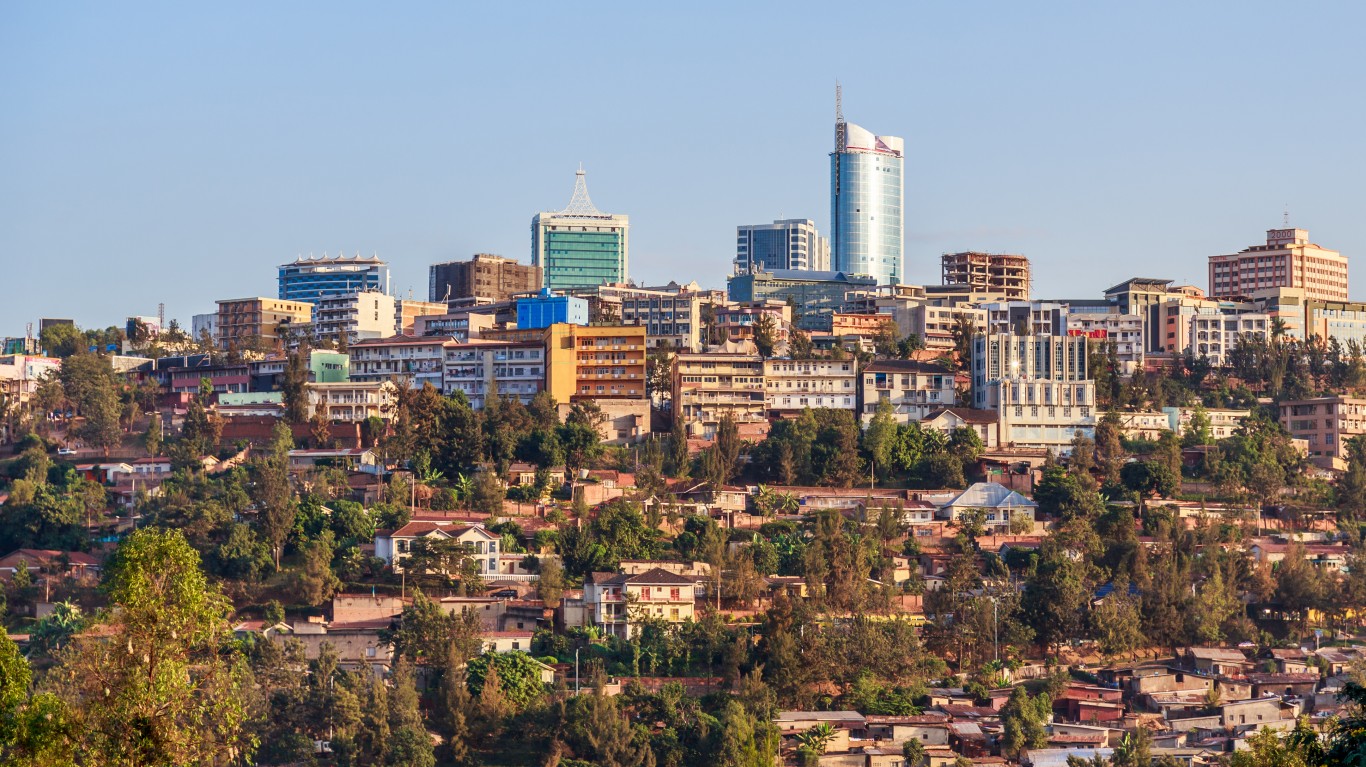
6. Rwanda
At first glance, Rwanda is an unlikely champion of equal rights. Unlike other countries at the top, it is not rich, has a turbulent history, and its life expectancy at birth of 67 years is low compared to developed countries. At 88%, Rwanda has one of the highest rates of female labor force participation in the world. In the United States, by contrast, that figure stands at 66%.
However, this outcome is not entirely by choice. It goes back to the country’s genocide more than two decades ago when close to 800,000 Rwandans were killed in three months. As a result, up to 70% of the country’s population were women, and they had to fill all the jobs.
[in-text-ad]

7. New Zealand
New Zealand has closed 80% of its overall gender pay gap, putting it at seventh place in the world, but at the top in the East Asia and the Pacific region. The country rose two spots since 2017 due to improvements in political empowerment of women. The increasing share of women in parliament has led to New Zealand entering the top 10 countries for gender equality for the first time.
Another significant improvement New Zealand has made over the last decade is in its attempt to close the gender gap has been in educational attainment. Nearly equal shares of the male and female population have primary and secondary education, and slightly more women have a college degree.
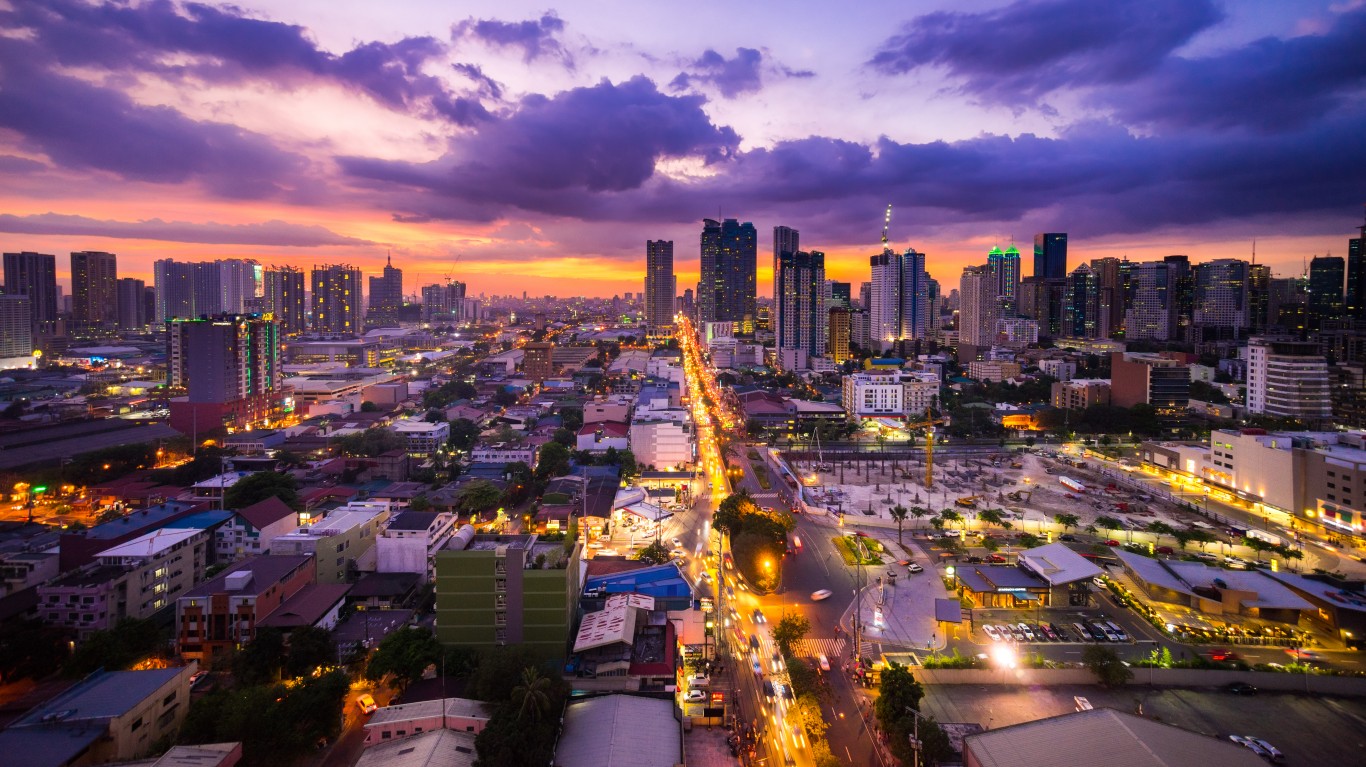
8. Philippines
The Philippines is the second country from the East Asia and the Pacific region in the overall top 10, also improving its ranking by two spots from 2017. It has managed to close nearly 80% of its gender gap, the highest value ever recorded for the Philippines.
The better ranking is largely due to improvements in wage equality for similar work and women’s estimated earned income. Gender gaps have been fully closed in legislator, senior official, and management positions, as well as in the literacy and college enrollment rates.
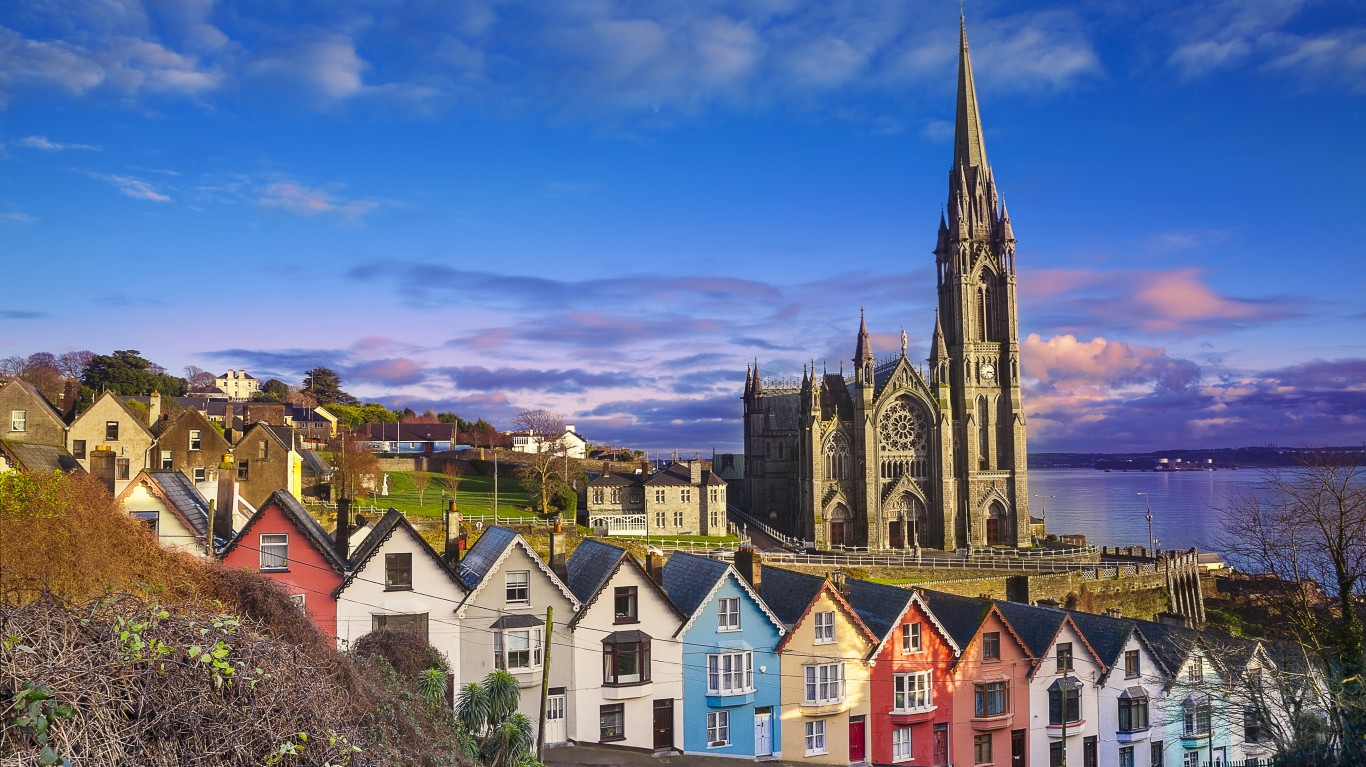
9. Ireland
Ireland’s gender gap ranking has been slipping since 2016, but it remains in the top 10. The country has managed to close more than 79% of its overall gender gap. Ireland recorded a small gender gap in enrollment in primary education, but saw an improvement in estimated earned income as a share of men’s earnings.
The difference between male and female life expectancy at birth in Ireland has completely closed. Likely due in part to the near-equal shares of men and women who attend college, the percentages of men and women employed in the nation’s professional and technical occupations are also near equal as of this year’s WEF report.
[in-text-ad-2]

10. Namibia
Namibia jumped three spots in one year to make the top 10 best countries for gender equality for the first time. (The only other country from the Sub-Saharan Africa region to do so was Rwanda.) Namibia has closed nearly 79% of its overall gender gap, which is about 10% more since 2006. The big jump is largely due to the country’s significant advances in women occupying parliamentary seats, for which it is currently fifth globally.
Last year Namibia received the African Gender Award for its progress in promoting gender equality, empowering women, and promoting women’s representation in positions of power.
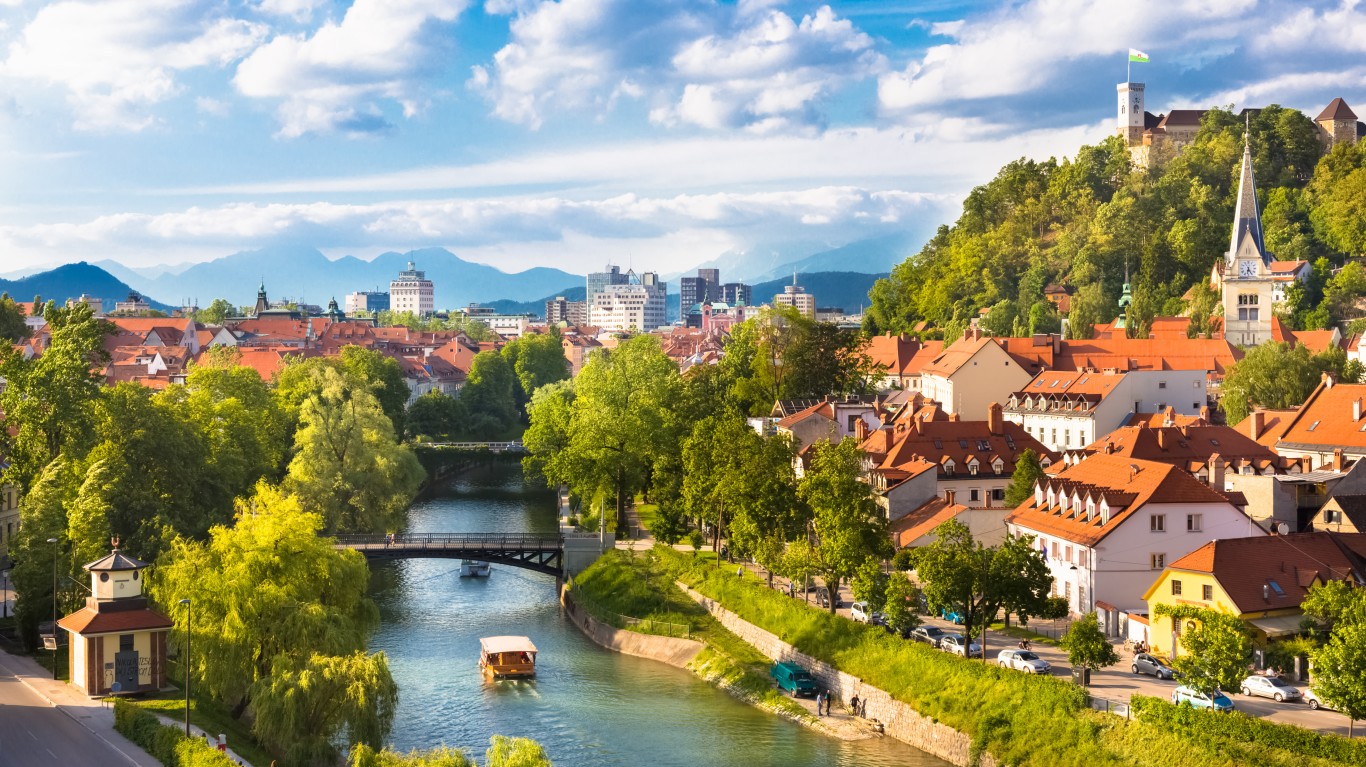
11. Slovenia
Slovenia, which has closed over 78% of its overall gender gap, is the best country in the Eastern Europe and Central Asia region for gender equality. It remains the regional leader despite slipping out of the Index’s top 10. Women are still paid less for similar work, though more are participating in the labor force.
Slovenia has completely closed gender gaps in ministerial positions, healthy life expectancy at birth, and educational attainment.
[in-text-ad]
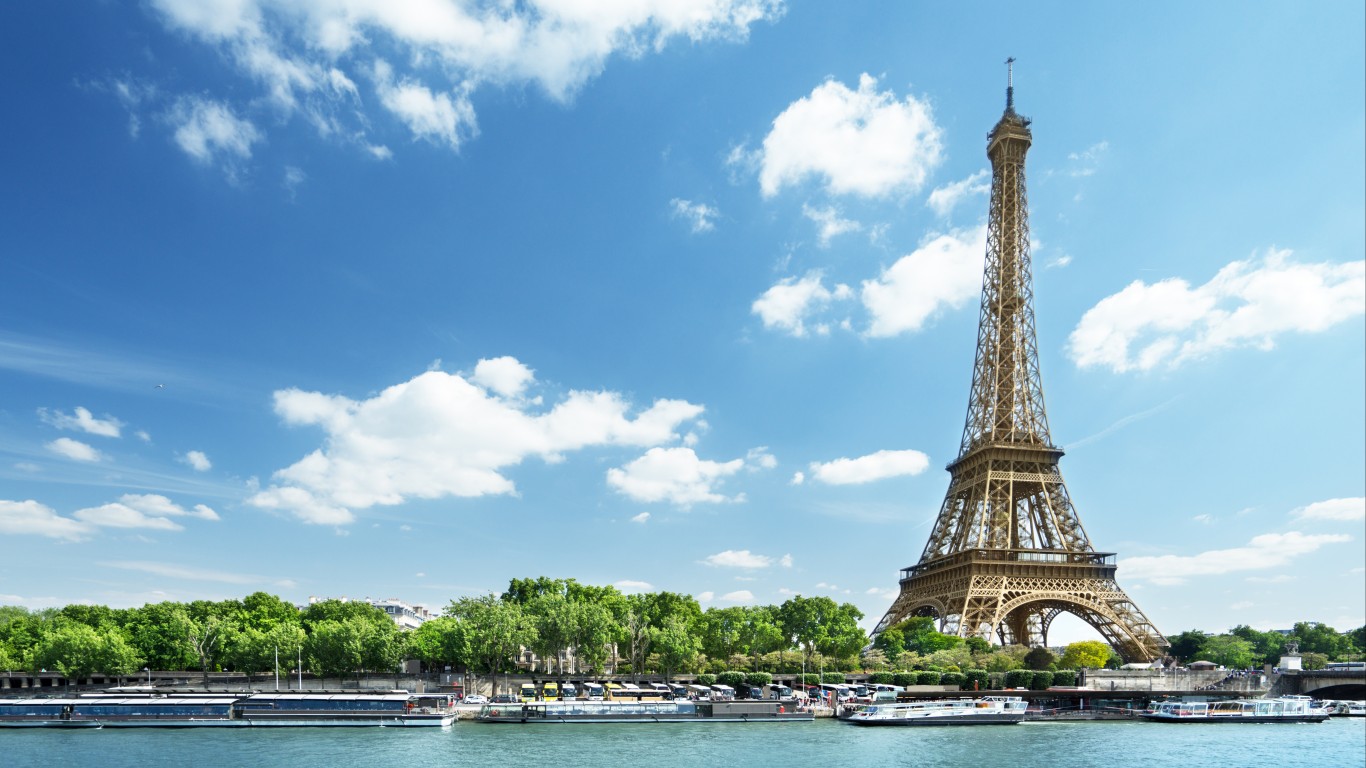
12. France
Out of G20 countries, France has made the most progress towards gender equality. The country’s overall gender gap is estimated at nearly 78%. The country’s biggest improvement since 2017 is in the political empowerment and estimated earned income measures.
However, France is still behind other countries when it comes to women participating in the labor force and economic opportunity — it ranks 63rd out of 149, with many developing countries ahead of it.
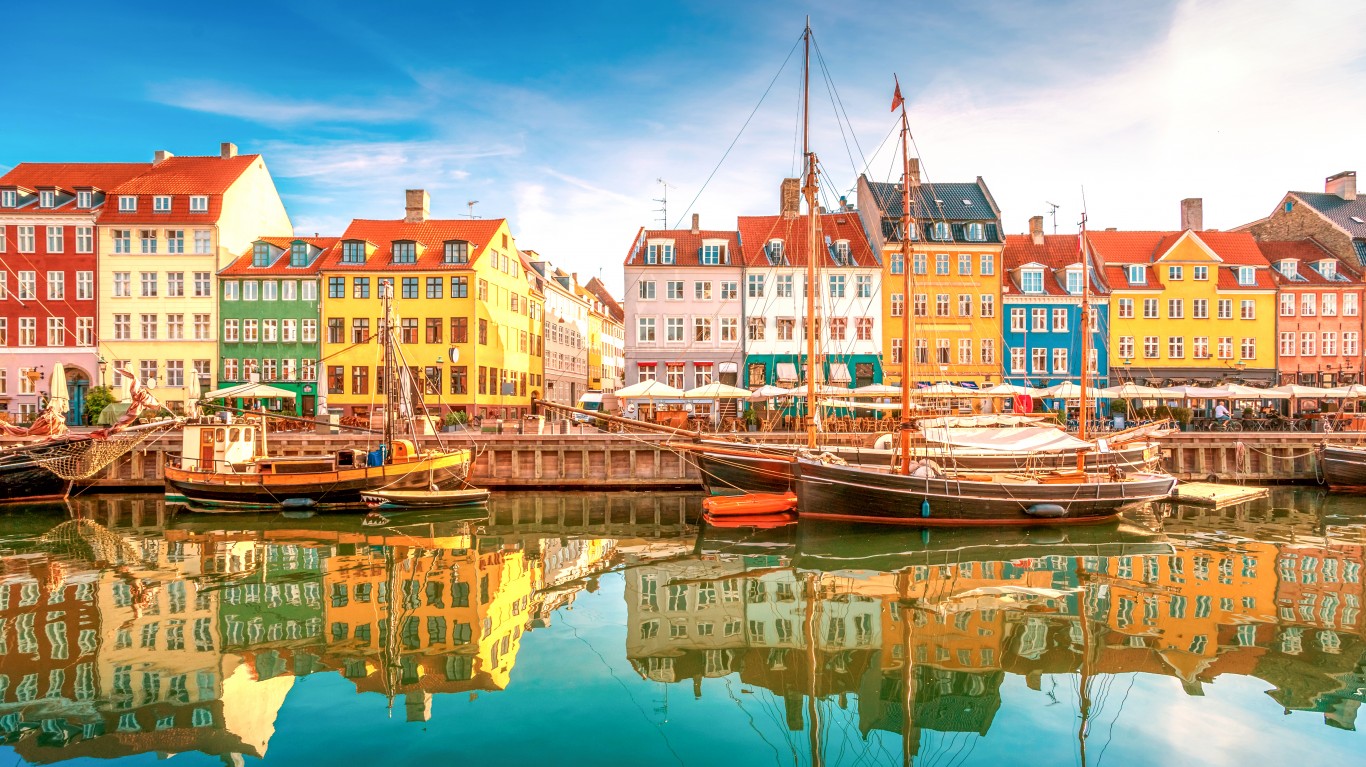
13. Denmark
Denmark has made significant improvements in closing the gender gap in estimated earned income. The country is also close to closing the gap in labor force participation — over 77% of women work, compared to 82% of men.
Both men and women are able to work outside the home and pursue careers thanks to government supported daycare and generous parental leave of 224 days, which can be split between the parents any way they see fit.
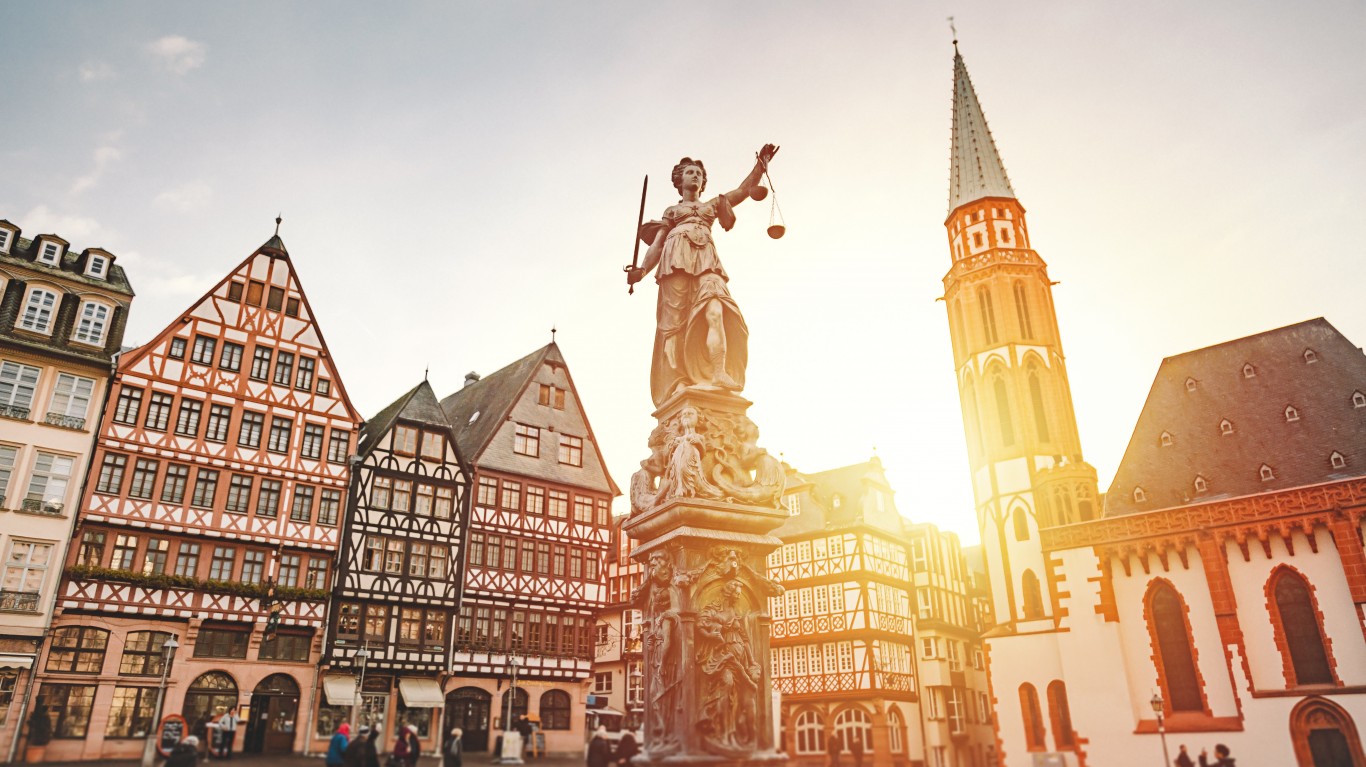
14. Germany
Germany seems to be moving in the opposite direction when it comes to closing the overall gender gap. It ranked 5th in 2006, but is now 14th. Compared to 2006, Germany scored worse in all of the four major measures used to create the Global Index — economic participation, education, health, and political empowerment.
The country moved down in the 2018 report specifically because of a widening gender gap in women in parliament. Also, Germany’s still has a gender gap in educational attainment, causing the country to rank last in the Western Europe region in this subindex.
[in-text-ad-2]
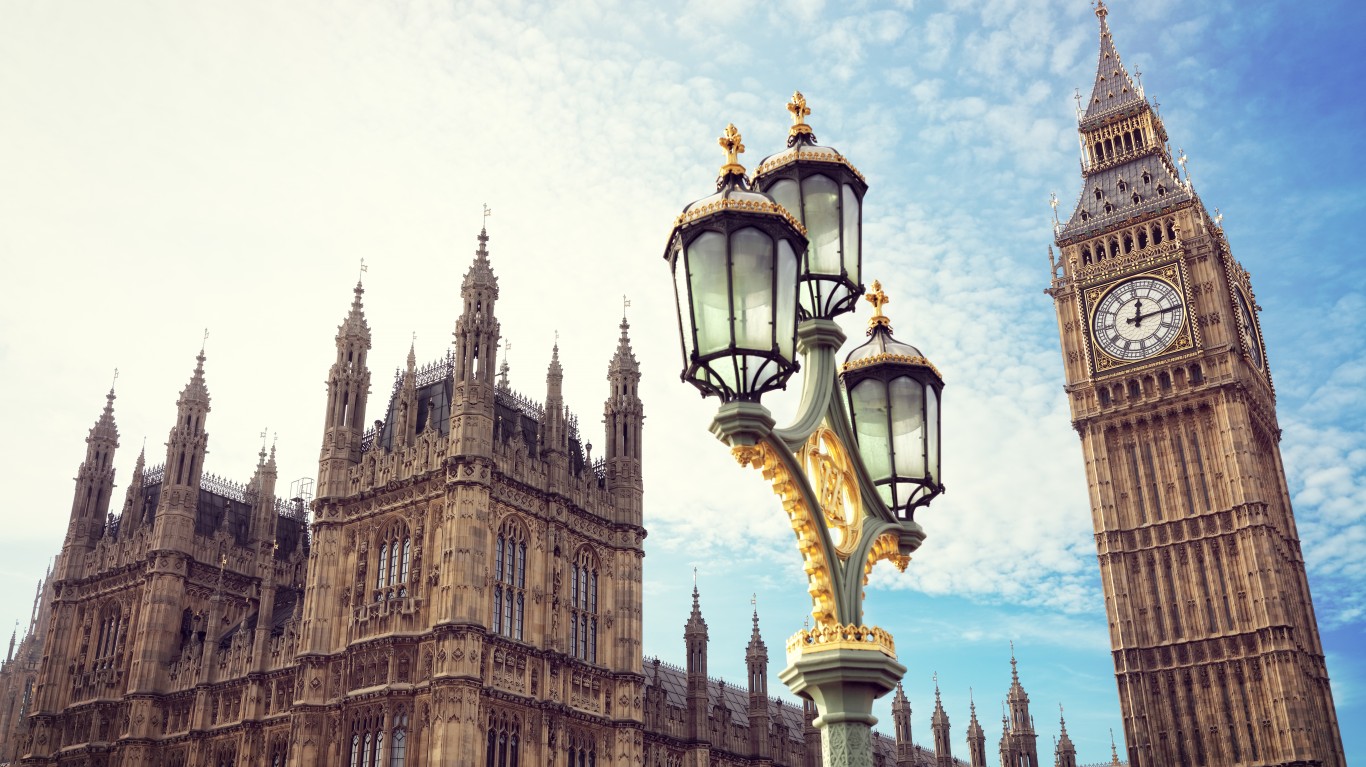
15. United Kingdom
The United Kingdom has made a few improvements in its attempts to reach gender parity. The overall gender gap is just over 77%. The country is doing especially well in the political empowerment subindex.
A law passed in 2010 required all big companies to publish how much they pay their employees, but it only came into force in 2018. There is now even a tool people can use to track when employers stop paying women the same amount they pay men.
Start by taking a quick retirement quiz from SmartAsset that will match you with up to 3 financial advisors that serve your area and beyond in 5 minutes, or less.
Each advisor has been vetted by SmartAsset and is held to a fiduciary standard to act in your best interests.
Here’s how it works:
1. Answer SmartAsset advisor match quiz
2. Review your pre-screened matches at your leisure. Check out the advisors’ profiles.
3. Speak with advisors at no cost to you. Have an introductory call on the phone or introduction in person and choose whom to work with in the future
Thank you for reading! Have some feedback for us?
Contact the 24/7 Wall St. editorial team.